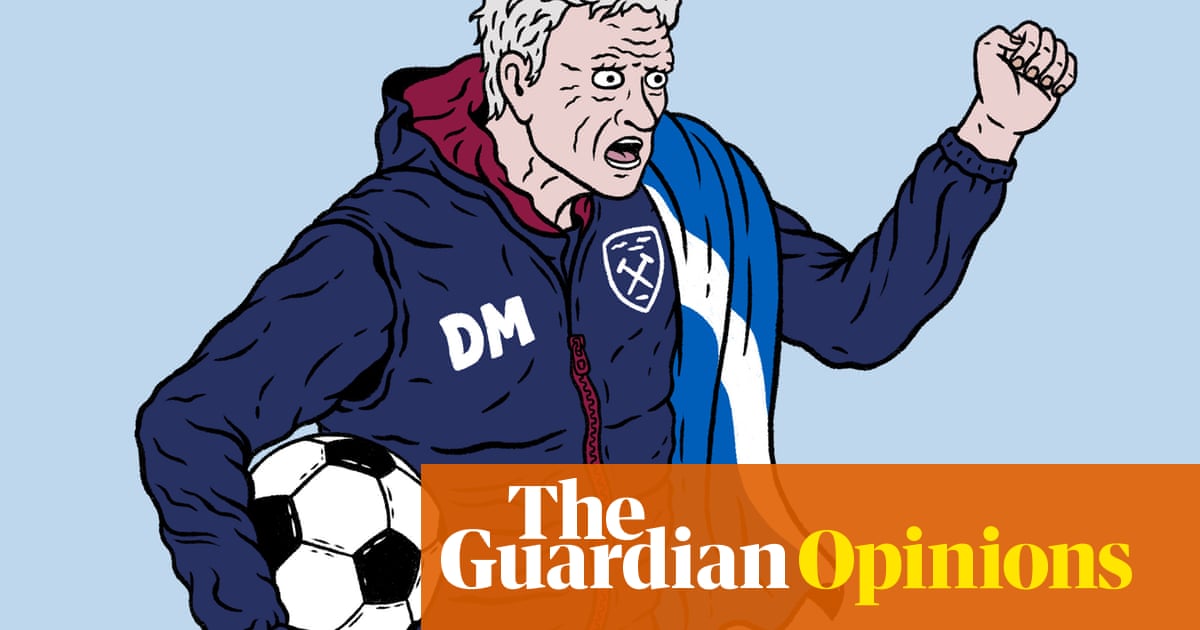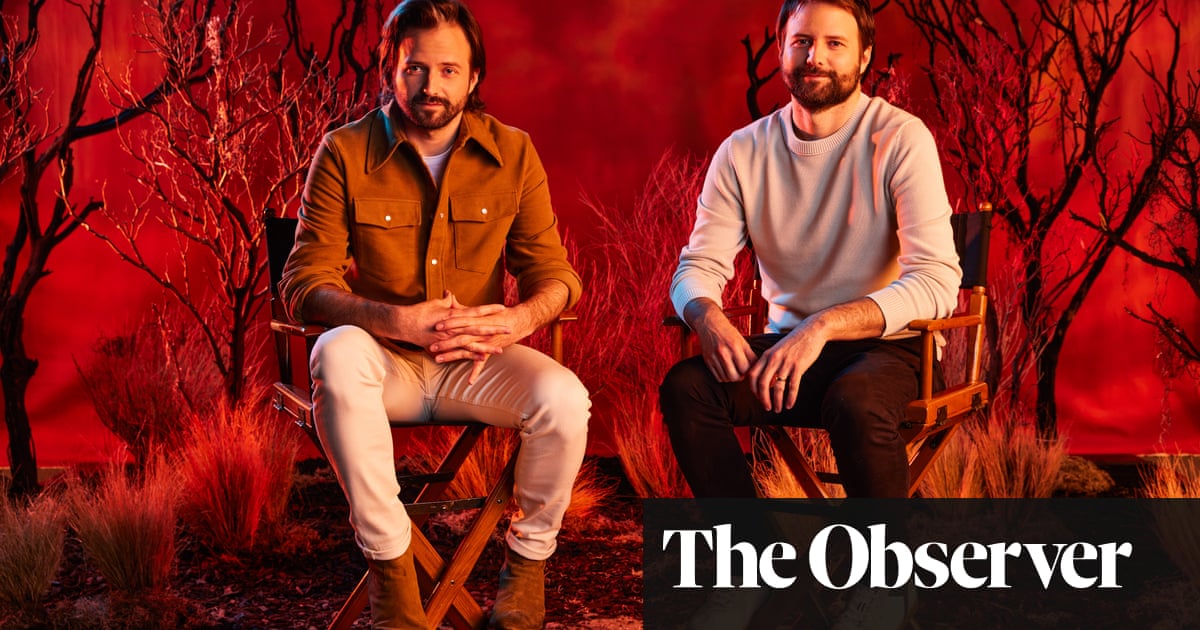
Ever since David Moyes left Manchester United, or at least since it became clear that this was a case of Manchester United doing something terrible to David Moyes as opposed to the other way round, that he was essentially a bystander, I have been trying to promote a hypothetical process some (ie nobody, anywhere) are already calling (nobody has ever called it this) the Moyes Revenge Horizon.
This theoretical Moyes Curve is an attempt to map the related career trajectories of Moyes and United in that decade since. The key note in this model is a scenario where Moyes’s steady rise in desirability as a managerial good will eventually intersect with and then surpass United’s own downward progress on the Y axis as a luxury football item, an economic event known, apocalyptically, as Brailsford’s Ballbag.
At that moment the poles will have been officially reversed. From a point where the United job was self-evidently Too Big For David Moyes, we will have reached a scenario where David Moyes has become, however briefly, Too Big For Manchester United, where pundits begin to say things like You have to ask, would this actually be a good move for David right now?, where Moyes is pictured coyly batting away speculation before his latest Euro Hyper-Conference Third Leg Second Final (“I’m looking no further than Gent”).
The Moyes Revenge Horizon was never likely to be reached, not in this human lifespan. But for a while last year you could almost catch a glimpse of what it might look like. West Ham won a trophy. United subsided into a bumper autumn harvest of player scandals and bad PR.
The recent mini-takeover bounce has put a stop to that. The lines are diverging. There are actual happy, talented, youthful footballers running around Old Trafford, like crocus buds inside the Chornobyl exclusion zone. Meanwhile Moyes is facing a more familiar point of crisis.
His contract is up at the end of the season. There has been plenty of informed speculation this week over how close he might be to agreeing a new one, soundtracked, as ever, by fans and talking heads agonising over the prospect of keeping Moyes in a job he has so far performed with great skill and tangible success.
This is a natural scenario for Moyes, who tends inexorably towards a state of embattlement. There is dark talk about his methods, about the need for more “expansive” football. Understandably so. Moyes offers functional rigidity. Oh great, you say. Give me seven years of that. Let me get another hit on that functional rigidity pipe. Life is hard enough the rest of the week. People also like new things.
On the other hand, for the neutral this feels like a wider jumping-off point, perhaps even a last twitch of some dying hand. Moyes has been on a journey these last few years, albeit one that has involved remaining static while the landscape shifts around him.
When he got the West Ham job for the first time in 2017 Liam Rosenior wrote a widely shared column in these pages complaining, with some justification, about insular skill sets, jobs for the boys, “the same faces linked to every available job”.
Seven years on, football appears to have been listening. The background has shifted to such a degree that Moyes is now a genuinely rare commodity. A manager who once seemed like an avatar of the same-old same-old, basically a tracksuit, a frown and a set of inherited methods, is now an outlier and a vital note of tactical variation.
Moyes is basically the last of the anti-possession men, the only current manager to take an active decision to have less, not more, of the ball. West Ham are seventh bottom in Europe’s top five leagues on possession percentage this season, and the only team in that company for whom this is a deliberate choice, the only team to have translated so little of the ball into so many points, to remain unexceptional on every metric apart from clearances and goals from set pieces.
In this context it is Moyes’s team who are the exotics and the cultural antagonists now. L’Équipe’s report on the game against Brighton in August described “a clash of style that verged on cartoonish” as West Ham made 13 passes to Brighton’s 221 in the opening half-hour but still won the game. And while the football may be austere and tedious at times, for the neutral it is also a bracing point of contrast in a league where an entire half can be spent watching defence and deep midfields engaged in the footballing equivalent of competitive knitting.
West Ham are seventh in the league and still in Europe despite a basic energy that goes against pretty much every dynamic in the modern game. This includes surveillance-culture refereeing with a tendency to fire off micro-penalties at the first sign of deep defence. It includes a basic disregard for self-promotion while so many other managers treat the current job as an interview for the next one, a chance to demonstrate their possession of a whizzy and ingratiating “philosophy”, a look, a style, something that can be sold to the next set of fans.
The current version of jobs for the boys is not an angry, damp Scotsman who loves the details of one-on-one defending. It’s easy charisma, sculpted beard, executive trainers, mercurial hand gestures. Moyes is not this. Moyes is uncooperative, prone to saying the wrong, outdated thing even when trying to say the right thing.
But then, perhaps unexpectedly, this is also a redemption story. United was a terrible time for Moyes, reduced in those final weeks to a ghost-ship captain, whirling on his touchline, eyes boggled, seeing only shapes and shadows.
People don’t always come back from this kind of mega-sacking. Moyes skulked about the place for a while, a man watching things happen to himself. West Ham was a great thing for him. It has been great for West Ham too.
It is easy to forget how tinny and empty the place still was when he arrived, lacking in heat, blood and grime, a state of dislocation for a club that seemed to have left an important part of its soul somewhere up the road in E6. Moyes was, in retrospect, an excellent fit to fill that empty air, a manager who, whatever his flaws, absolutely stinks of football.
Whereas right now he feels like the last of something. There is also the Scottish question. When it comes to elite English management Moyes is currently the last of that 130-year line too, Brighton-born Russell Martin the only other Scot in the top two tiers.
Does this matter? The Premier League has its own fresh tropes. A Portuguese nihilist. A twitchy, well-dressed Spaniard. For now it will be Moyes’s role to carry that cultural weight, to act as a living, breathing, scowling mnemonic.
To this point he has been a team-builder, punchline, a bust, a redemption arc, a late-breaking trophy winner; and in this final form something that perhaps deserves to be cherished a little more, a genuine point of difference, a grappling hook to from there to here, the last of the same old faces.












